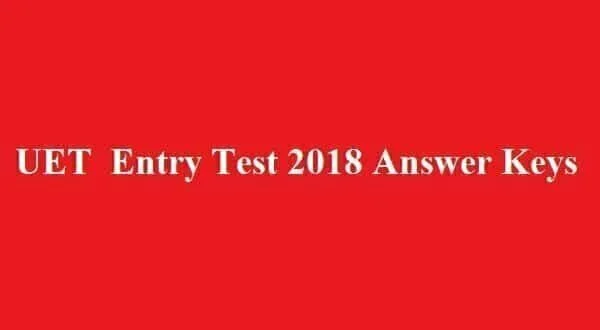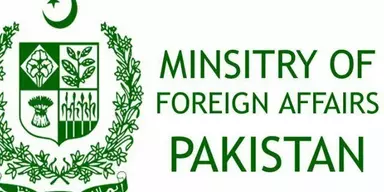The combined Entry Test of UET for admissions in engineering programs in HEC recognised universities in Punjab is going on across the province. Almost 50,000 students appeared in this combined entry test for admissions in engineering programs in government and some private colleges and universities in Punjab.
As per the press release of UET earlier issued for the guidance of the students, thirteen examination centres had been set up in addition to the main campus of UET Lahore.
UET ECAT Entry Test 2018 Answer Keys Blue, Green, Brown, Red
UET Lahore ECAT 2018 Answer Keys Online:
http://admission.uet.edu.pk/Modules/EntryTest/Default.aspx#
Strict security measures were taken by the local governments to avoid any issue as happened in the last few years. The candidates were advised to bring their original CNIC and Admit card and also Matric or First Year Result Card. The students were already told not to bring calculators or any other electronic gadget in the exam centre.
The 4th consultative session “Higher Education in Pakistan: Challenges and Opportunities” was held on Friday at the University of Education’s Township campus.
According to a press release, representatives of federal Higher Education Commission (HEC), Punjab HEC, Vice-Chancellors (VCs) of various universities and other stakeholders attended the event.
Vice-Chancellor University of Education Dr Rauf-e-Azam said the dialogue was aimed to discuss the problems being faced by higher education sector and put forward meaningful recommendations.
He said universities should be given autonomy, but we need to believe on self-accountability as well to achieve excellence. Punjab Higher Education Commission Chairman Dr Nizam-ud-Din said universities should focus on research culture adding the universities should produce good teachers and excellent researchers as well.
GCU Vice Chancellor Dr Hassan Amer Shah said there should not be any political interference in the affairs of universities.
The dialogue unanimously agreed on; protection of autonomy of universities, at least four percent of GDP to education and ¼ of the same for higher education sector with constitutional protection, all provinces should have their higher education commissions and they should work according to the decision and guidelines are given by the Council Common Interest (CCI) and constitution of a national task force to re-visit Higher Education Commission Act and recommend improvements in higher education sector.















